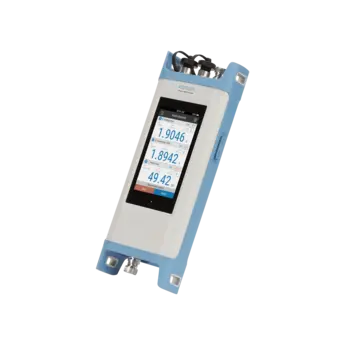Handheld charge amplifier and transmitter monitoring with data acquisition, 3 channels / 5811A01 Config

- Handheld charge amplifier with measuring ranges from ±100 to ±1000000 pC
- Frequency range from ≈0 to 20 kHz
- Integrated memory for data acquisition with up to 50 kSps per channel
- Fully flexible low-pass and high-pass filter adjustment
Electrical properties
The handheld device Type 5811A01 is not only a portable, battery-powered charge amplifier and monitoring device for dynamic and quasi-static signals, but also a powerful data acqusition system, that stores the digitized measurement values directly on the device allowing to export the data to a host computer via a USB interface. Moreover, the type 5811A01 can be used as a monitoring device for transmitters or other devices / sensors with analog output of ±10 V. In the SDCI mode, the handheld device functions as a master with which IO-Link devices of Kistler can be configured, parametrized, and monitored on-site.
The handheld device is configured and operated via an intuitive user interface on touchscreen display which is supplemented by side buttons to allow operation of main controls with gloves. The graphical user interface not only provides a simple and intuitive way to configure the device but also displays various measurement values (e.g. live value, peak value, root mean square value) as well as the measurement curve in a y/t graph. An evaluation view allows to check if the measured process signal is within user defined limits.
The handheld device can store presets of user generated measurement configurations. This not only allows to quickly change between repeatedly executed tasks, but it also ensures that these tasks are executed with identical settings, resulting in consistent data.








.webp)
-DE.webp)